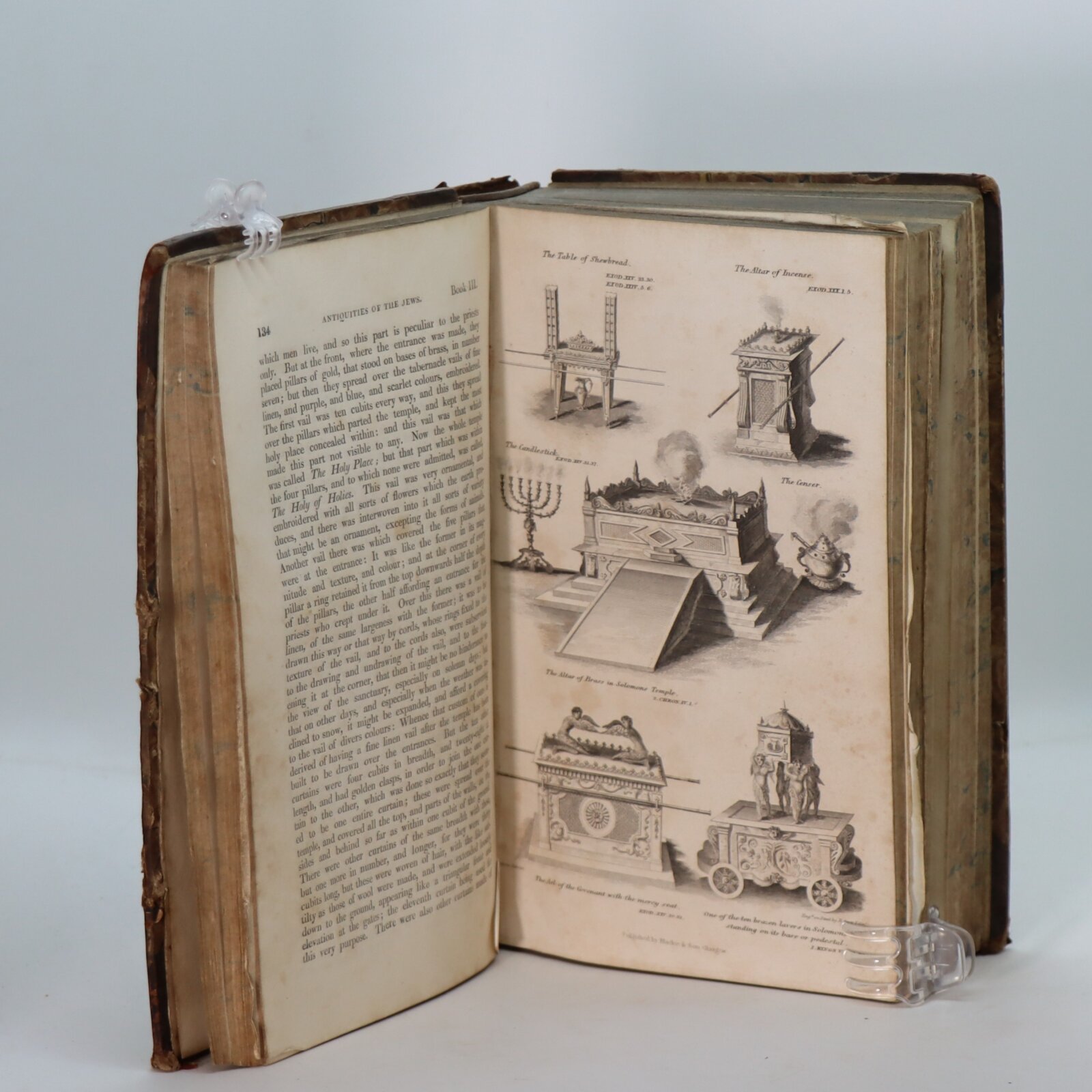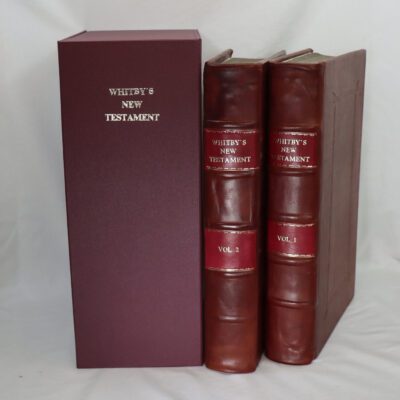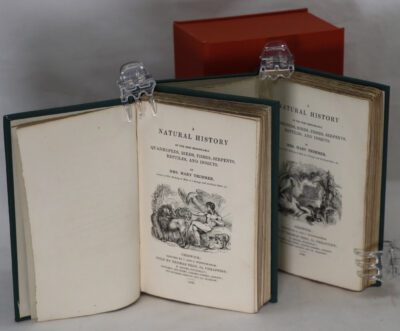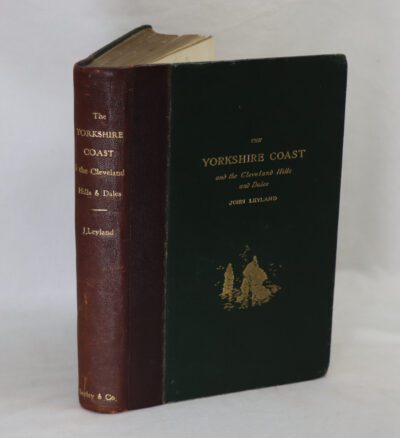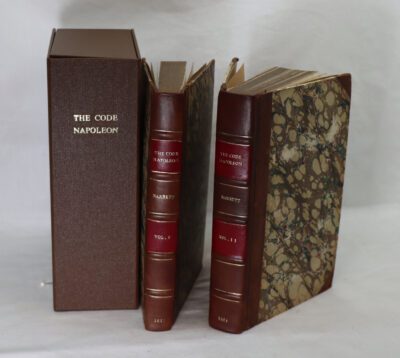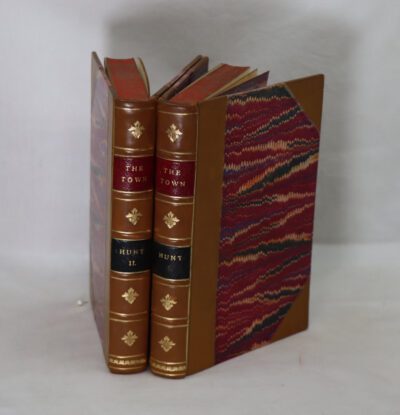Whiston's Josephus I-II.
By William Whiston
Printed: Circa 1800
Publisher: Blackie & Son. Glasgow
| Dimensions | 15 × 22 × 6 cm |
|---|---|
| Language |
Language: English
Size (cminches): 15 x 22 x 6
Condition: Very good (See explanation of ratings)
FREE shipping
Your items
Item information
Description
Brown leather spine with black title plate, gilt banding and lettering on the spine. Faded blue and tan marbled paper boards.
A well-travelled edition in the original binding, interesting emphemeral, would be an additional £1,000 if volumes III & IV were present
Flavius Josephus c. 37 – c. 100) was a first-century Romano-Jewish historian and military leader, best known for The Jewish War, who was born in Jerusalem—then part of Roman Judea—to a father of priestly descent and a mother who claimed royal ancestry.
He initially fought against the Romans during the First Jewish–Roman War as head of Jewish forces in Galilee, until surrendering in 67 CE to Roman forces led by Vespasian after the six-week siege of Jotapata. Josephus claimed the Jewish Messianic prophecies that initiated the First Jewish–Roman War made reference to Vespasian becoming Emperor of Rome. In response, Vespasian decided to keep Josephus as a slave and presumably interpreter. After Vespasian became Emperor in 69 CE, he granted Josephus his freedom, at which time Josephus assumed the emperor’s family name of Flavius.
Flavius Josephus fully defected to the Roman side and was granted Roman citizenship. He became an advisor and friend of Vespasian’s son Titus, serving as his translator when Titus led the siege of Jerusalem in 70 CE. Since the siege proved ineffective at stopping the Jewish revolt, the city’s pillaging and the looting and destruction of Herod’s Temple (Second Temple) soon followed.
Josephus recorded Jewish history, with special emphasis on the first century CE and the First Jewish–Roman War (66–70 CE), including the siege of Masada. His most important works were The Jewish War (c. 75) and Antiquities of the Jews (c. 94). The Jewish War recounts the Jewish revolt against Roman occupation. Antiquities of the Jews recounts the history of the world from a Jewish perspective for an ostensibly Greek and Roman audience. These works provide valuable insight into first century Judaism and the background of Early Christianity. Josephus’s works are the chief source next to the Bible for the history and antiquity of ancient Palestine, and provide a significant and independent extra-Biblical account of such figures as Pontius Pilate, Herod the Great, John the Baptist, James the Just, and possibly Jesus of Nazareth.
William Whiston (9 December 1667 – 22 August 1752) was an English theologian, historian, and mathematician, a leading figure in the popularisation of the ideas of Isaac Newton. He is now probably best known for helping to instigate the Longitude Act in 1714 (and his attempts to win the rewards that it promised) and his important translations of the Antiquities of the Jews and other works by Josephus (which are still in print). He was a prominent exponent of Arianism and wrote A New Theory of the Earth.
Whiston succeeded his mentor Newton as Lucasian Professor of Mathematics at the University of Cambridge. In 1710 he lost the professorship and was expelled from the university as a result of his unorthodox religious views. Because Whiston recognized the Bible as a book of spiritual truth, he rejected the notion of eternal torment in hellfire. He viewed it as absurd and cruel, as well as an insult to God. What especially pitted him against church authorities was his denial of the Trinity after extensive research convinced him of the pagan origin of the Trinity doctrine.
Condition notes
Want to know more about this item?

Related products
Share this Page with a friend


